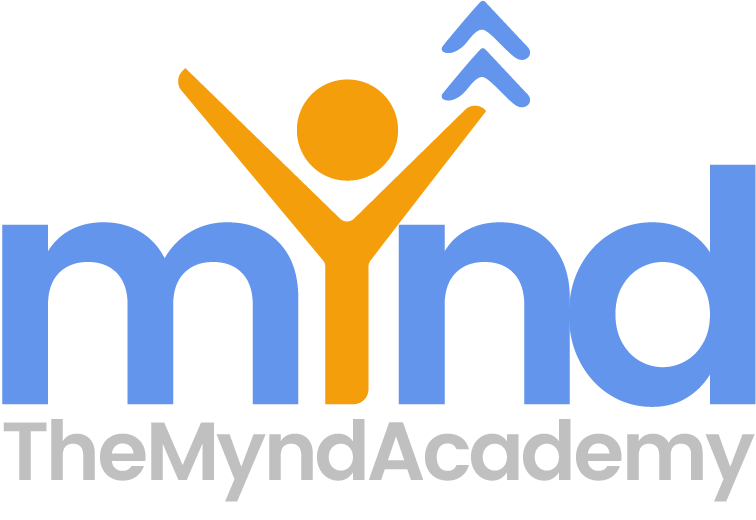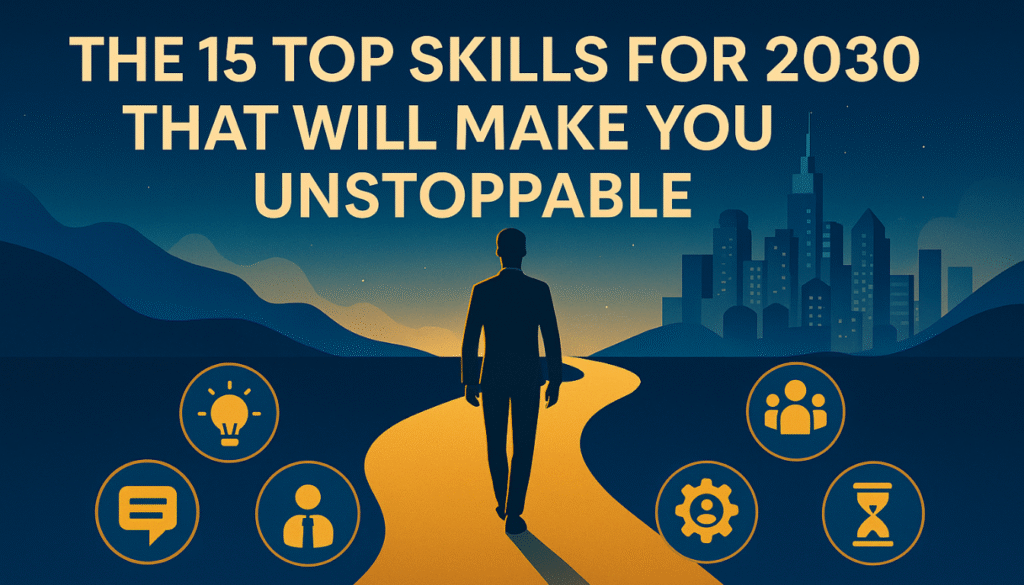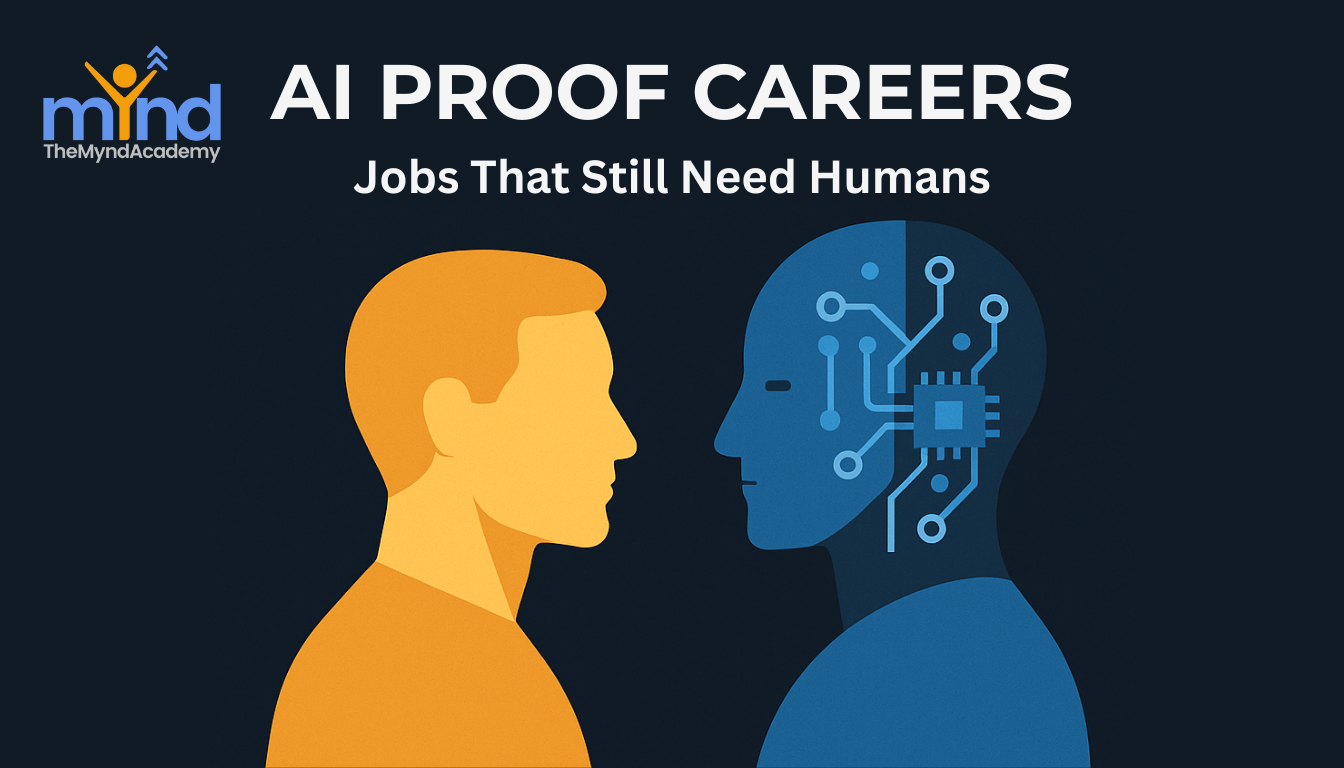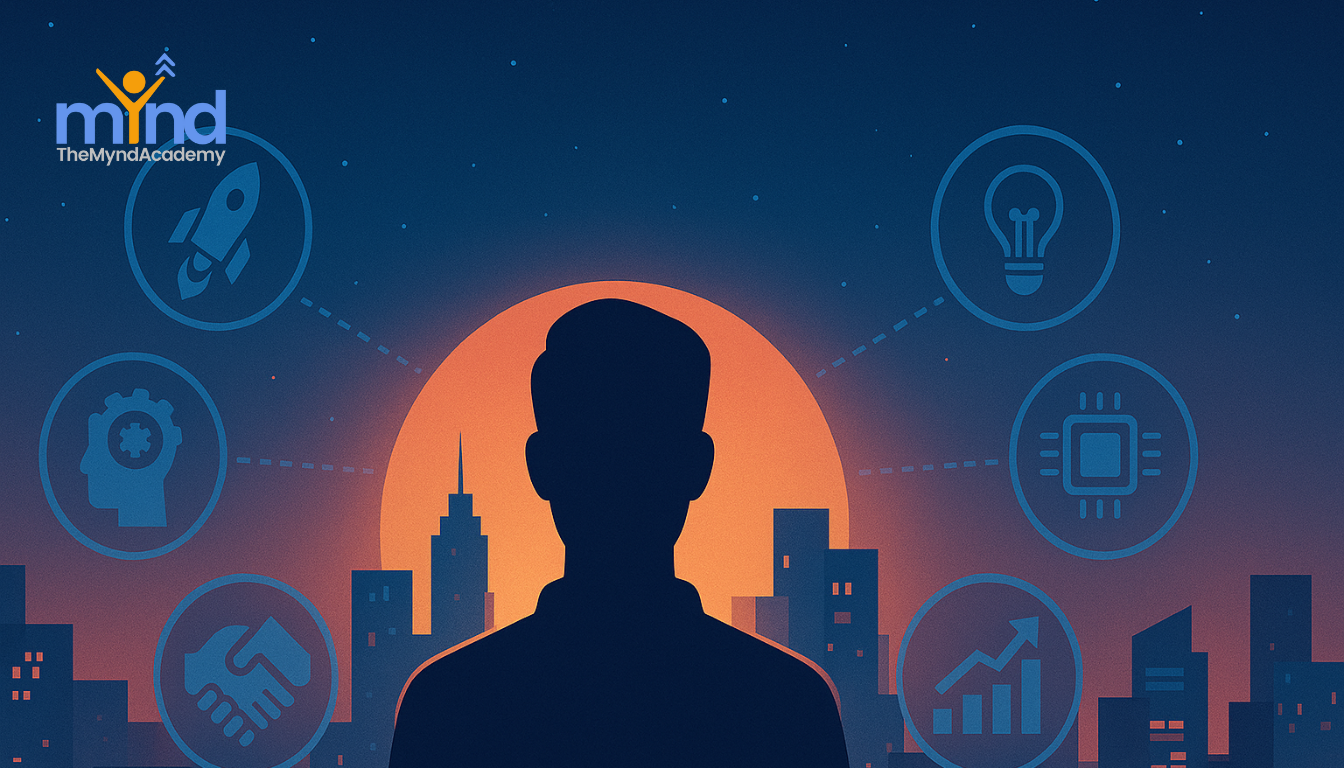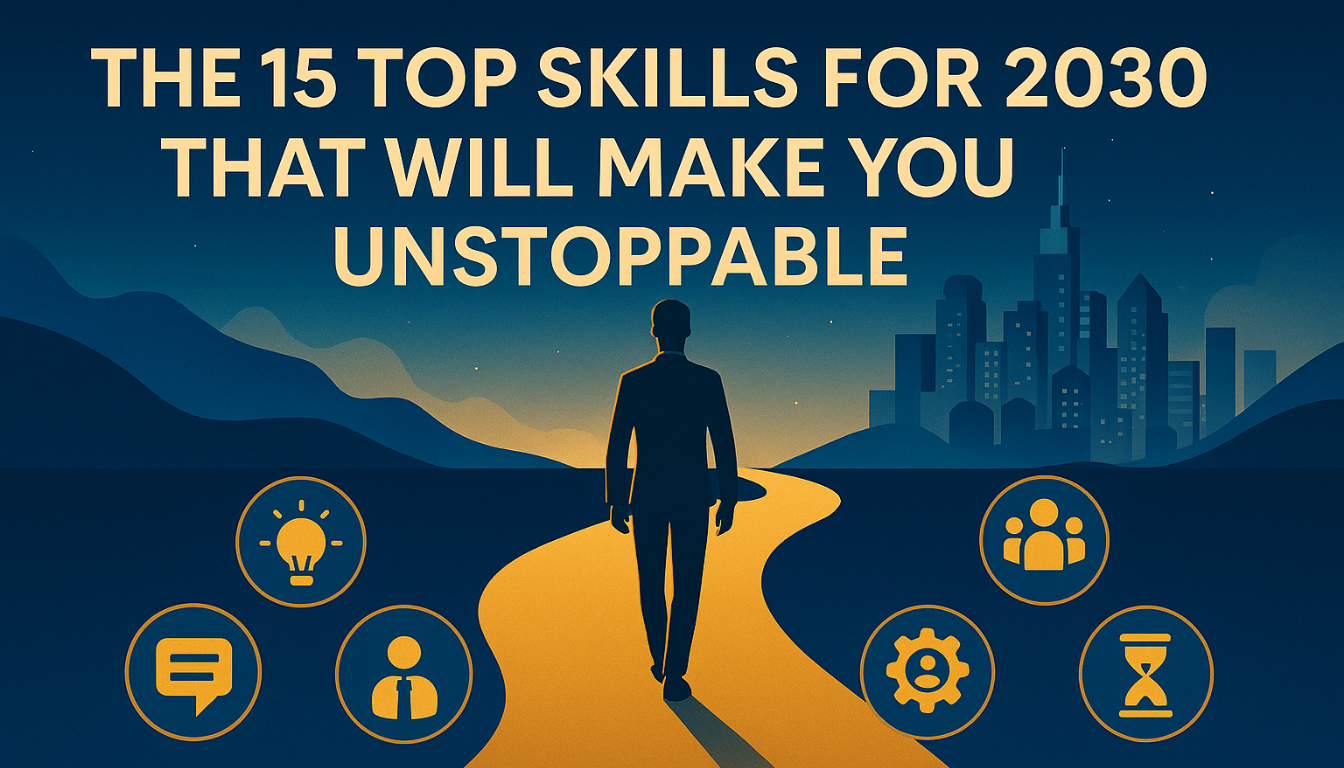Top skills for 2030 are your insurance policy for a future that’s getting harder to predict! You might be great at what you do today, but that won’t matter much if your skills don’t evolve with the world around you. The world is changing fast, and the only people who’ll keep up are the ones who know how to invest in certain key skills. Jobs are disappearing, new ones are popping up overnight, and entire industries are shifting under our feet.
We’ve all seen talented people getting stuck, not because they’re lazy or unmotivated, but because they didn’t update their toolkit. The truth is, staying relevant now means being proactive, not perfect. You don’t need to learn everything, but you do need to learn the right things.
In this blog, we’ll break down 15 of the most important, high-impact Top skills for 2030 that will actually help you thrive in the upcoming years and stay ahead of 90% of the population. No vague advice, and no impractical life coaching; Just real, targetted tips to help you grow, stay ahead, and build a life that doesn’t fall behind with the times.
Here’s what you’ll find inside:
- Practical examples, neuroscience-based tools, and clear strategies you can actually use
- The 15 most powerful skills to thrive in the next decade
- Why these skills matter more than degrees or job titles
- Action steps, tools, and tips to start mastering them now
Table of Contents
The 15 Top Skills for 2030 That Will Make You Unstoppable
Let’s break down the top skills for 2030 that can be your most important assets in the future of work, learning, and personal growth. These aren’t just traits companies are looking for—they’re the skillset that will set you apart when AI gets smarter, the job market gets tighter, and the world demands more than qualifications.

1: Critical Thinking & Problem Solving
One of the biggest disadvantages of living in the digital era is that there’s just too much noise. Information overload, cognitive fatigue, conflicting opinions, and constant mental stimulation make it harder than ever to actually think. There’s so much to consume that filtering useful information, holding onto what matters, and making the right call has become a serious challenge.
That’s exactly why critical thinking is one of the most important top skills for 2030. Because the ability to slow down, question what you’re seeing, and not accept every headline at face value is what will set you apart in a world obsessed with speed.
And no, this isn’t about being overly skeptical or argumentative. It’s about choosing to be deliberate.
Train it by:
- Taking 5 minutes at the end of the day to ask: What did I assume today that might be wrong?
- Playing strategic games—anything that forces you to plan, pause, and predict
- Creating a mental habit of asking: Is there another way to look at this?
Smart decisions come from sharp thinking. And sharp thinking isn’t natural—it’s skill you build by training.
2: Reading People & Emotional Intelligence (EQ)
It’s easy to ignore emotions when the world keeps telling you to “just be productive.” But the truth is, emotions shape every single thing—your decisions, your focus, your relationships, your leadership. That’s why emotional intelligence isn’t a soft skill anymore. It’s survival. And it’s one of the top skills for 2030 that most people are still neglecting.
Think about it: AI can mimic tone, but it can’t truly feel. It can’t sense tension in a room, respond to discomfort in someone’s eyes, or repair a damaged conversation. Only humans can do that—and those who can do it well will always be in demand.
Ways to strengthen EQ:
- Get in the habit of naming your emotions, even if just to yourself
- Practice empathy by trying to understand people without fixing or defending
- Say how you feel, even in small doses—“I’m frustrated right now” is a complete sentence
In the future of work, the people who understand emotions—not just data—will lead the way. That’s why EQ is one of the most timeless top skills for 2030.
3: Digital Literacy & AI Fluency
The world is already digital, and it’s only getting more intelligent. From the way we search to how we think, technology is influencing everything. So if you’re still treating digital literacy like something “tech people” need to worry about, you’re already behind.
Understanding how digital systems work, how AI tools process input, and how to navigate these spaces confidently is one of the most essential top skills for 2030—not just for career growth, but to stay functional in daily life.
You don’t need to learn to code. You need to understand how these tools think.
Start here:
- Use ChatGPT or Gemini daily—but experiment with different prompts to see how it “reasons”
- Learn the basics of prompt design; it’s a real skill now
- Understand how platforms collect and rank data—it’ll change how you consume everything
Digital fluency is no longer optional. It’s a filter that separates those who are running ahead from those who are running in circles. That’s why it firmly belongs on the list of top skills for 2030.
4: Adaptability & Growth Mindset
One thing about the future is that it doesn’t really care how things used to work. Change isnt just arriving; its already here, and it’s not slowing down for anyone. The people who will thrive are the ones who learn how to bend without breaking, rethink old beliefs, and stay open to learning. That’s why adaptability is one of the most essential top skills for 2030—because nothing is permanent anymore except your ability to adjust.
Having a growth mindset means seeing setbacks as information, not failure. It’s not about being blindly optimistic. It’s about staying grounded while still believing you can evolve.
Practice it like this:
- When something goes wrong, ask: What is this trying to teach me?
- Use the phrase “Not yet” instead of “I can’t”
- Track your small wins—even if they seem irrelevant. Progress compounds.
The future rewards learners, not knowers. So make sure adaptability is part of your toolkit of top skills for 2030—or you’ll be stuck watching from the sidelines.
5: Creativity & Innovation
We’re all so impressed and intimidated by the power of AI that we’ve forgotten that AI is just a generative agend! AI can remix, remake and regenerate, but it can never create meaning the way you can. AI can never have the power of uninhibited creative thinking like we humans do. It other words, you can also say that AI can never think outside the box, it can only think within the limits of the information that is provided to it! So what can set you apart in this digitalized era is having a creative mindset that can solve problems by thinking outside the box.
Creativity isn’t just for artists; it’s a mindset. Creatice thinking helps you solve complex problems, connect unrelated ideas, and come up with solutions others haven’t considered. That’s why creative thinking is one of the most underestimated top skills for 2030—because it leads to the kind of breakthroughs machines can’t replicate.
And no, you don’t have to be a “creative person” to be creative.
Fuel Creativity by:
- Exposing yourself to ideas from outside your field—design, science, philosophy, fiction
- Keeping a “random idea” folder—those sparks matter more than you think
- Making time for boredom. Your best ideas often come when your brain isn’t trying so hard
When everyone else is stuck in old systems, your creativity could be what changes the game. That’s exactly why it belongs on every serious list of top skills for 2030.
6: Collaboration & Influence
Being smart doesn’t matter much if you can’t work with people. And working with people in 2030 won’t just mean your coworkers it will include collaborating across time zones, cultures, screens, and systems. Being able to navigate that complexity with clarity and influence is one of the most non-negotiable top skills for 2030.
But influence here isn’t about manipulation. It’s about being able to communicate ideas clearly, earn trust, and build alignment without power plays.
Ways to build this:
- Practice active listening—not waiting to speak, but really hearing
- Learn how to give and receive feedback without defensiveness
- Understand cultural cues and communication styles different from your own
People who can manage humans and systems will always be in demand. That’s why collaboration is far more than just a soft skill—it’s one of the most practical top skills for 2030.
7: Time Mastery & Deep Focus
In a world full of constant distractions and dopamine loops, focus has become a rare asset. The ability to manage your time—and more importantly, your attention—is what separates people who move forward from those who stay stuck. This is why time mastery is one of the most underrated yet essential top skills for 2030.
It’s not about doing more. It’s about doing what matters—and actually finishing it.
Try this:
- Block out 90-minute “deep work” windows without notifications or multitasking
- Use the Pomodoro technique to train your brain for focused bursts
- Audit your day weekly: Where did your time go? Was it aligned with what matters?
Your ability to focus is directly tied to your ability to thrive. Especially in the chaotic energy of the future, this will be one of the most game-changing top skills for 2030.
8: Resilience & Stress Regulation
The future will definitely be demanding, so how can you prevent burnout and stay at the top of the game? Its important to remember that burnout doesn’t just happen because you’re working hard, it happens when you’re pushing through without recovering, reflecting, or knowing when to pause. Resilience is less about pushing nonstop and more about learning how to bounce back.
That’s why emotional regulation is now considered one of the most vital top skills for 2030—because the people who stay calm under pressure are the ones others trust, follow, and rely on.
Build it by:
- Learning nervous system regulation tools (like breathwork, grounding, or box breathing)
- Paying attention to your energy patterns, not just your calendar
- Reframing stress: What if this isn’t pressure… but preparation?
Resilience isn’t about being strong all the time—it’s about staying steady when things feel shaky. And that ability will be crucial in mastering the top skills for 2030.
9: Communication (Across Every Format)
You could have the best ideas in the world—but if you can’t explain them clearly, no one will know. Whether you’re writing an email, presenting in a meeting, or sharing a thought online, the way you communicate is your reputation. That’s why strong communication skills rank high among the top skills for 2030.
When we talk about communication skills, we’re not just talking about grammar or speaking skills; we’re talking about clarity, tone, empathy, and knowing when to shut up.
Sharpen your communication skills by:
- Writing daily—start with short reflections, or LinkedIn posts
- Practicing storytelling (real ones, not recycled advice)
- Recording yourself speaking and noticing what lands—and what doesn’t
The world is noisy. Say something worth hearing. Communication isn’t just a soft skill s skill anymore—it’s one of the most crucial top skills for 2030.
10: Systems Thinking
Not every problem is a surface issue. Most challenges—whether in your personal life or your career—are connected to other moving parts. That’s why one of the smartest top skills for 2030 is learning to see the bigger picture, track patterns, and understand how things connect over time.
Linear thinking doesn’t work in a world that’s anything but linear.
Start here:
- Study the basics of systems thinking (Donella Meadows’ book is a solid start)
- Map feedback loops in projects—what’s feeding what? What’s stuck?
- Practice asking: What’s the root cause? instead of just reacting to symptoms
This is the skill that turns you into a strategist—not just a doer. And in 2030, strategy will matter more than speed. That’s why this belongs in your top-tier top skills for 2030 list.
How to Develop the Top Skills for 2030 (Without Overwhelming Yourself)
Reading about the top skills for 2030 is just the first step. The next step is learning how to build them. When it comes to learning new skills, people often think you need to have a lot of free time on hand so you can sit and learn a new skill. But the truth is, you don’t need to overhaul your entire life to get started. These skills aren’t talents you’re born with. They’re trainable, stackable, and often overlap in ways that make progress feel real instead of performative.
The key is not to try and master everything at once. It’s to build small, strategic habits that target the right areas, and let those habits compound.

1: Pick Three Skills, Not All Fifteen
You don’t need to learn every single one this month. Choose three top skills for 2030 that feel most urgent or relevant to where you are right now. Are you constantly drained? Start with time mastery and resilience. Struggling to adapt at work? Focus on digital fluency and collaboration. Pick what matters—then go deep.
2: Turn Daily Life Into Practice
You don’t need to sign up for expensive courses to build the top skills for 2030. Your current life already gives you a dozen moments a day to train them—if you’re intentional.
- Use work meetings to practice clear communication and influence
- Use setbacks to build resilience and emotional intelligence
- Use free evenings to explore creativity, strategy games, or reflective journaling
You’re not behind. You’re surrounded by opportunities.
3: Use Habit Pairing to Make Skills Stick
If you want the top skills for 2030 to actually become part of how you think, you need systems—not willpower. Habit pairing is one of the easiest ways to do this. Attach a new micro-skill to something you already do.
Examples:
- After your morning coffee → write a 3-line journal reflection (EQ + focus)
- During your daily scroll → bookmark one article on future tech or systems thinking (digital literacy)
- After finishing a project → do a quick debrief: What worked? What didn’t? (critical thinking)
Small tweaks. Big shifts.
4: Get Feedback—Even If It’s Uncomfortable
One of the fastest ways to grow any of the top skills for 2030 is to ask for feedback. Not just when things go wrong, but even when they go okay. Feedback shows you what you don’t know you’re missing. It builds self-awareness, emotional intelligence, and better collaboration—instantly.
Ask:
- “What’s one thing I could’ve done better in that conversation?”
- “Was I clear in how I communicated that?”
- “If you were me, what would you do differently?”
Yes, it feels awkward. But it also works.
5: Track Progress in a Way That Actually Feels Good
If you’re serious about growing the top skills for 2030, you need to track progress—not obsessively, but consistently. The goal isn’t perfection. It’s awareness.
Create a simple weekly review:
- What skill did I focus on this week?
- What did I do that helped?
- Where did I default back—and why?
- What’s one small thing I can adjust for next week?
The more you reflect, the more intentional you become. And that’s what real skill-building looks like.
6: Stay in the Room When It Gets Boring
Here’s the truth: Developing the top skills for 2030 isn’t always exciting. It’s repetitive. Sometimes uncomfortable. Often slow. But mastery isn’t built in motivation—it’s built in monotony. If you can stay in the room when it stops being shiny, you’re already ahead of 90% of people.
So when you’re tempted to quit the journaling, or skip the deep work session, or stop asking better questions—don’t. Stay in the room.
Showing up is the underrated foundation of every one of the top skills for 2030.
FAQ: People Also Ask
What are the top skills needed for the future?
The top skills for 2030 include emotional intelligence, digital fluency, critical thinking, creativity, adaptability, and communication. These abilities will be in high demand across industries.
Why are future skills more important than degrees?
Because industries are evolving fast, employers now prioritize adaptability, problem-solving, and tech skills over static academic qualifications. Skills are dynamic; degrees are dated.
How can I future-proof my career?
You can future-proof your career by learning the top skills for 2030, embracing lifelong learning, and staying updated with industry trends. Regular self-assessment and mentorship also help.
Are soft skills still important in the AI era?
More than ever. While AI automates tasks, human-centric skills like empathy, communication, and ethical judgment are irreplaceable and increasingly valued.
What’s the best way to build these skills consistently?
Use structured learning, habit stacking, online courses, and mentorship. The MYND Academy’s growth planner can help track your progress.
Liked This Article?
If this blog helped you map out what to build, our previous article breaks down why the future is demanding these shifts in the first place.
Read: Future Skills 2030 – What the World Will Actually Reward
Because knowing the why behind the what is what makes it stick. And staying ahead isn’t just about learning fast—it’s about learning smart.
